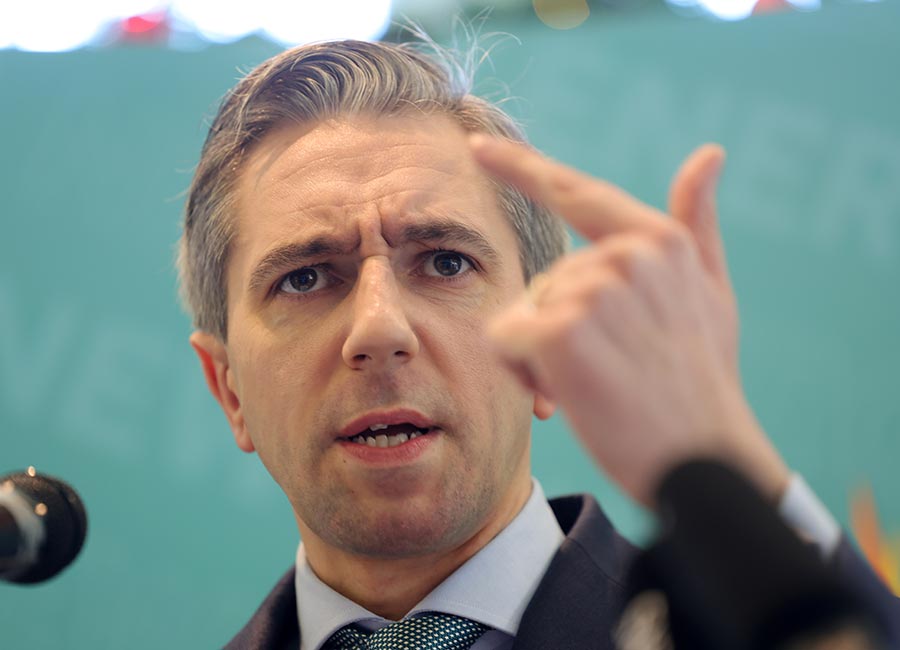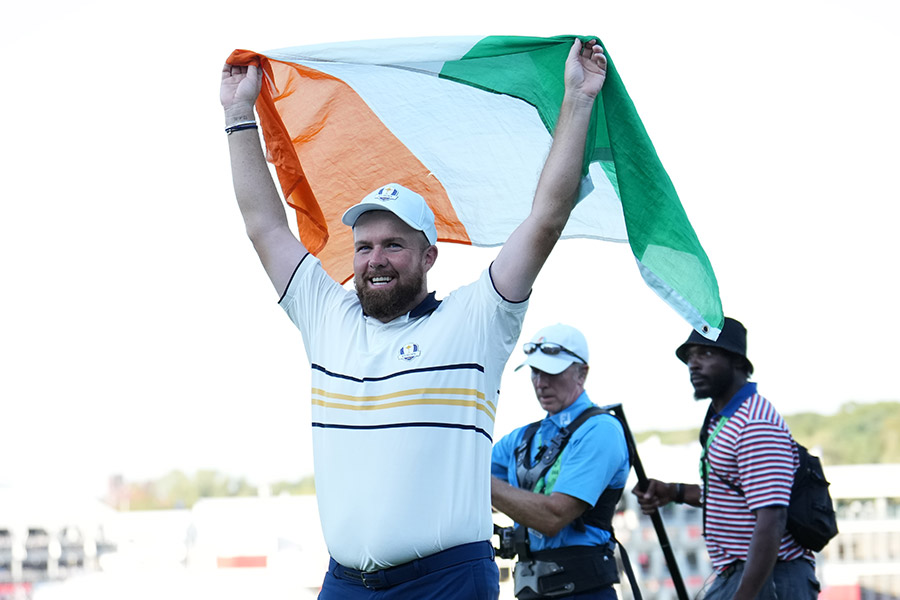Mary Harney’s old line about Ireland, Boston and Berlin – the quip that launched a thousand think pieces – has never seemed so salient, writes Gavan Reilly.
It would almost be easy to overlook, amid concerns about America’s military loyalty to Ukraine and the consequent security threat for the rest of Europe, that the transatlantic economic future is far from clear.
It would almost be funny if it weren’t so deathly serious.
It’s far from certain that many of Donald Trump‘s threats, whether it be tariffs or corporate tax, can come to pass.
There are fewer internal restraints on the president’s impulses now, but equally there is already a pattern of wild propositions being put on the table simply to widen the scope of what is considered an acceptable outcome.
Threaten a peace deal that goes over the head of Europe, and come away with access to half of Ukraine’s precious metals.
Threaten tariffs on Mexico, and secure commitments on border security.
Hopefully, the brazen talk of clearing Gaza of its inhabitants is merely a negotiating gambit for some less outrageous final position.
So what of his persistent badmouthing of the European Union, claiming it was founded solely “to screw” the United States (wrong) and his threat of penal tariffs on its members?
And what does that mean for little old Ireland, the EU member state most exposed to the ill-effects of any transatlantic trade shock?
Mícheál Martin may feel cursed with his misfortune on trips to Washington – presenting one bowl of Shamrock via videolink across an ocean, and the second one from Covid-imposed isolation across the street.
Now he arrives as one of the first emissaries from the EU, and may never have known a host so apparently disinterested in European welfare.
To its credit, the Irish government looks like it’s controlling the controllables.
Paschal Donohoe has commissioned research within the Department of Finance on the shock effects of penal tariffs, due early next month – the same time they might actually start showing up.
Simon Harris, as the new trade minister, has been convening stakeholders’ groups to establish not alone what remedies might be needed, but what can be introduced pre-emptively to strengthen Irish exporters.
Prevention is better than cure, after all.
There’s a saying in Harris’ department that diplomacy is a contact sport, and a cursory glance at the various cities being visited by Irish ministers for St Patrick’s Day tells a lot.
Ministers are not just visiting DC and New York; they’re also hitting the likes of Florida, Utah, Georgia, Michigan and Montana – all areas that have become firm Red States in the last two general elections.
All of this builds on the low-profile outreach work of Ireland’s network of consulates.
Will it work? No matter what bread is broken, what ice is defrosted by the other visitors, the tone for the whole programme will be set in the Oval Office.
From some domestic purposes, the Taoiseach’s task is lose-lose: go in confrontational, warning about stances on Gaza or Ukraine, and he risks being provoking a volatile, empowered president.
Go in softly-softly, hoping not to scare the horses, and he’ll be labelled as a patsy to fascism.
In that light, the best thing the Taoiseach can do is pre-resign himself to defeat in the publicity battle, and to do what is best for the country.
That is to outline, gently, the domestic blowback from the worst effects of Trump’s own proposals.

There are as many Americans working for Irish-headquartered companies as vice-versa, so trade blockages risk about 300,000 domestic jobs - and because winding down foreign production takes time, American drug prices will rise if there’s a levy on pharmaceuticals.
He could even hit the President where it most hurts.
None of Trump’s inner circle are short of cash, but does he really want to be the President who raised the price of their most beloved import: the Botox manufactured by Allergan in Mayo?











